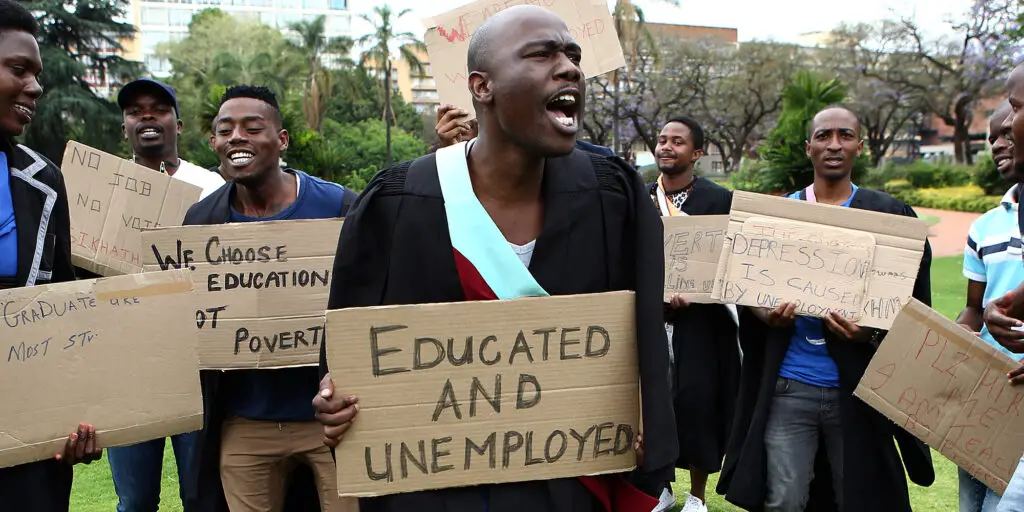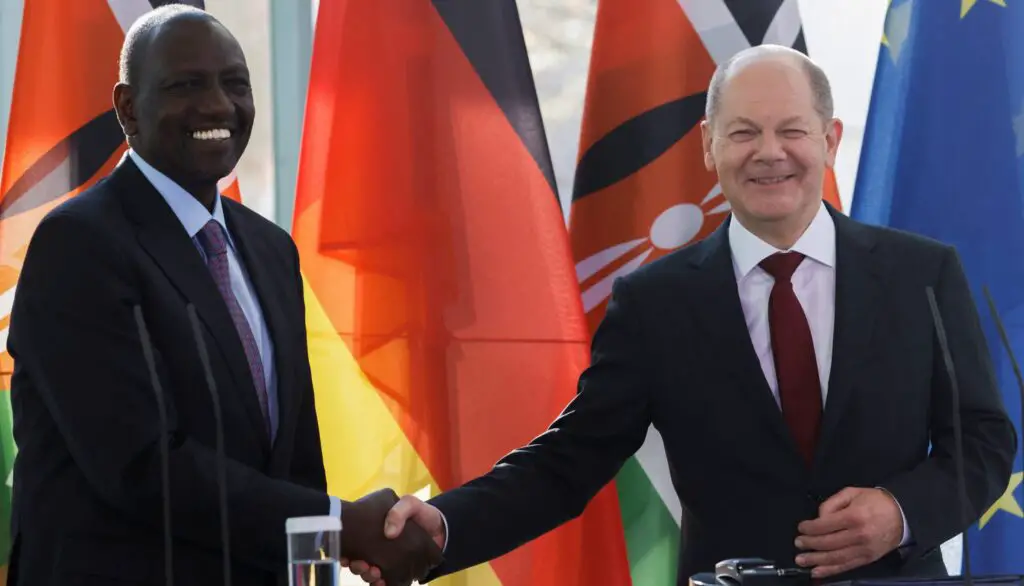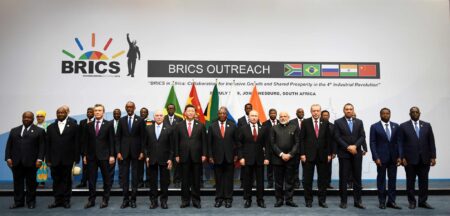- According to their announcements, Germany would take professionals, skilled worked and semi-skilled Kenyans.
- German has promised to fund, extend and modernize the country’s TVET institutions and centres of excellence from levels three to seven.
- They will create a framework for linking Kenyan Technical and Vocational Training (TVET) colleges with chosen TVET colleges in Germany.
Kenya and Germany struck a deal to increase the rate of International Jobs in Africa. According to reports, Germany agreed to allow Kenyans to fill 250,00 unfilled positions to help both countries with their impending unemployment rate.
Due to this partnership, Kenya cannot deal with its corrosive low employment rate, significantly dragging its economy down.
Kenya’s History with low job rates
It is common to hear the wails of Kenyan Youths when t comes to their country’s employment rate. These days most individuals turn to entrepreneurship to sustain their livelihood while “tarmacking” the town streets to look for a decent job. According to statistics, Kenya’s total workforce will increase by 40.6% to 40.4 million by 2035. This signals the country’s employment rate worsening, heavily affecting upcoming youths.
According to the Kenya Bureau of Statistics, the country had 1.055 million unemployed and educationally qualified youth in 2021. According to their reading, 2022 faired much better, shrinking its rate by 4.9%.
Unfortunately, this trend has gone on for almost three decades. According to the World Bank, Kenya’s Economy lags behind its peers due to its inability to care for its local talent. In truth, Kenya’s private sector salvages its unemployment rate by taking most of its labour force. Industries such as technology and private banks have taken most of this load, but there is only so much it can do. Kenya currently has almost twice East Africa’s 2.7% unemployment rate.
READ: EAC, Germany signs US $35 million agreement to boost livelihoods in the region.
Causes of Low Unemployment
Two distinct factors have fueled its demise; poor education structure and corruption. The former is caused by the country’s inability to provide affordable and efficient education to most youth. This problem will further worsen, given the recent announcement. The President to reduce all government sponsorship programs from private universities. The latter, however, is the leading cause of its high unemployment rate.

Its effects are severe, and it affects other industries and other sectors. This leads to high insecurity and theft within several parts of the country. Fortunately, President William Ruto has acknowledged this flaw and has set the pace to increase the rate of both local and international jobs in Africa.
New Partnership Set to Deal with Kenya’s Unemployment Rate
Chancellor Olaf Scholz of Germany and President Ruto of Kenya announced that Kenya and Germany were in the perfect position to form a partnership. Germany faced an acute labour force shortage within the past year and struggled. Fortunately, due to the high unemployment rate in Kenya, it provided the perfect opportunity for both countries to develop.
According to their announcements, Germany would take professionals, skilled worked and semi-skilled Kenyans. In addition, Berlin will reconsider and relax the various immigration restrictions. This will allow smoother transitions for the partnership to unfold.
Furthermore, they also agreed to create a framework for linking Kenyan Technical and Vocational Training (TVET) colleges with choose TVET colleges in Germany. Doing so will encourage better labour migrations between both states following graduation.
President Ruto said, “We have agreed to establish a technical team from my office and the ministries of Foreign Affairs and Labour in both countries, to initiate discussions, expeditiously navigate the procedures and formulate an appropriate framework for exporting labour to Germany.”
READ: Regional peace, technology top German President’s visit to Kenya.
He further claimed that to ensure a smooth station for more international jobs. The first step would be to bridge the language gap. As a result, the country will introduce more German-based education institutions, TVETs and other institutions of higher learning. Germany also agreed and will provide the necessary training staff.
Germany agrees to fund
To strengthen the aspect of international jobs in Africa, German has promised to fund, extend and modernize the country’s TVET institutions and centres of excellence from levels three to seven.
Doing so will increase the quality of education, addressing one of the critical sources of the country’s high unemployment rates. These jobs in Germany will open doors for more international relations between Kenya and other European nations, further strengthening other industries such as trade.
Aside from acquiring 250000 jobs in Germany, Kenya is a significant commercial country for the state. President WIlliam also took this opportunity to further post-trading affairs between both countries, highlighting an imbalance of power.
In 2021, Kenya only acquired $130 million in exports from Germany, while it spent at least $390 million on imports. This provides ample opportunity for the Kenyan President to renegotiate trading affairs and establish new relations between countries.
As a result, Kenya is steadily increasing international jobs in Africa, proving once more that Africa’s talent has plenty of potential and opportunities.











